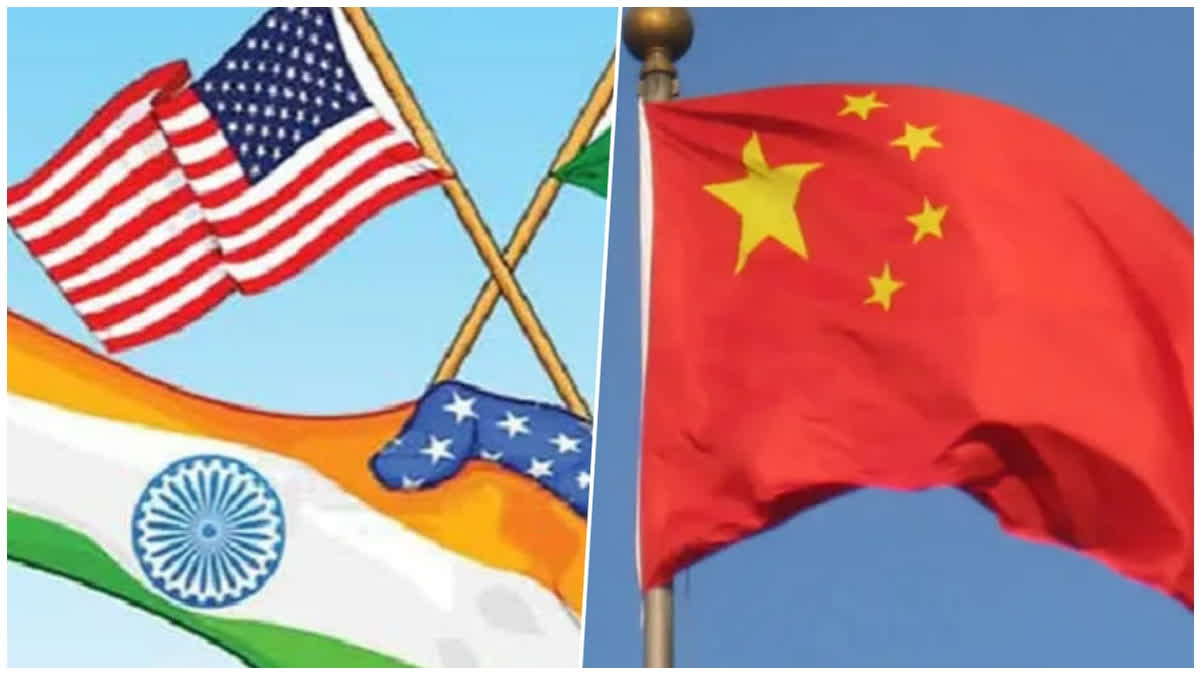New Delhi: An agreement for starting a new railway and shipping project connecting India with West Asia and Europe is likely to be signed between the US, India, Saudi Arabia and the United Arab Emirates (UAE) during the ongoing G20 Summit here.
The agreement to this effect is likely to be signed on the sidelines of the G20 Summit on Saturday. US President Joe Biden, Saudi Crown Prince Mohammad Bin Salman and UAE President Mohammed bin Zayed Al Nahyan are all currently in New Delhi.
According to White House Deputy National Security Advisor Jon Finer, the memorandum of understanding (MoU) is expected to be signed during a meeting focused on global infrastructure to be held on the sidelines of the G20 Summit.
“The deal will benefit low and middle-income countries in the region, and enable a critical role for the Middle East in global commerce,” Finer told the media here. "We see this as having a high appeal for the countries involved, and also globally because it is transparent because it is of a high standard because it is not coercive.”
Finer also explained that it is not just a railway project, but a shipping and railway project.
According to Axios.com, which first reported this development, the project is one of the key initiatives the White House is pushing in the Middle East as China’s influence in the region grows. The Middle East is a key part of Chinese President Xi Jinping’s pet Belt and Road Initiative (BRI).
The new US-led project is expected to connect Arab countries in the Levant and the Gulf via a network of railways that will also connect to India through seaports in the Gulf, Axios.com quoted sources as saying. This new initiative is a result of a number of rounds of negotiations between the I2U2 nations. The I2U2 bloc comprises India, Israel, the US and the UAE.
“It comes as the Biden administration seeks to complete its diplomatic push for a mega-deal with Saudi Arabia that could include a normalisation agreement between the kingdom and Israel before the 2024 (US presidential) campaign consumes Biden’s agenda,” the Axios.com report stated.
If the project fructifies, there will be all the reasons for New Delhi to rejoice. From the very beginning, India has opposed China’s BRI as a key project under it, the China-Pakistan Economic Project (CPEC), which passes through Pakistan-occupied Kashmir and runs to the port of Gwadar in Pakistan.
The BRI is a global infrastructure development strategy adopted by the Chinese government in 2013 to invest in over 150 countries and international organisations. It is considered a centrepiece of Xi’s foreign policy. It forms a central component of Xi’s “Major Country Diplomacy”, which calls for China to assume a greater leadership role in global affairs in accordance with its rising power and status.
Observers and sceptics, mainly from non-participant countries, including the US, interpret it as a plan for a Sino-centric international trade network. Critics also blame China for putting countries participating in the BRI under debt traps. In fact, earlier Italy became the first G7 country to pull out of the BRI.
When the new railway and shipping project proposed by the US becomes functional, it will further boost India’s connectivity needs as New Delhi is already investing in the International North-South Transport Corridor (INSTC). The INSTC is a 7,200-km-long multi-modal network of ship, rail, and road-route for moving freight between India, Iran, Azerbaijan, Russia, Central Asia and Europe. The route primarily involves moving freight from India, Iran, Azerbaijan and Russia via ship, rail and road.
Now, it will be interesting to see how China reacts once India, the US, Saudi Arabia and the UAE sign the MoU for the new railway and shipping project. Watch this space.
Also read: India at centre stage when it comes to German foreign policy, says German Embassy spokesperson
Also read: G20 contributed to making India world-ready and world India-ready: EAM Jaishankar



